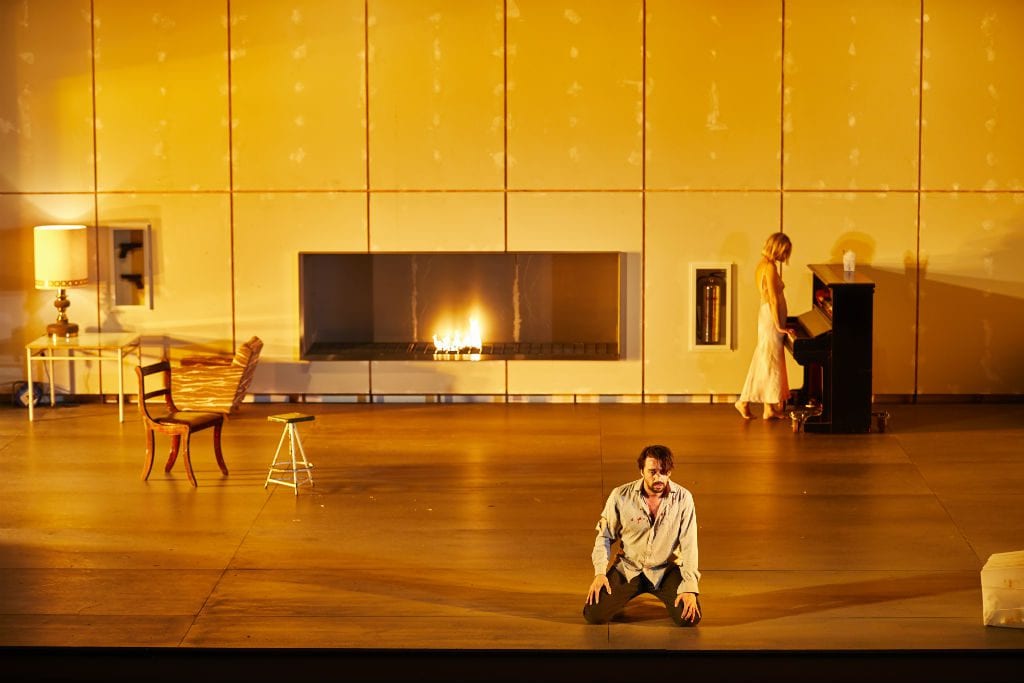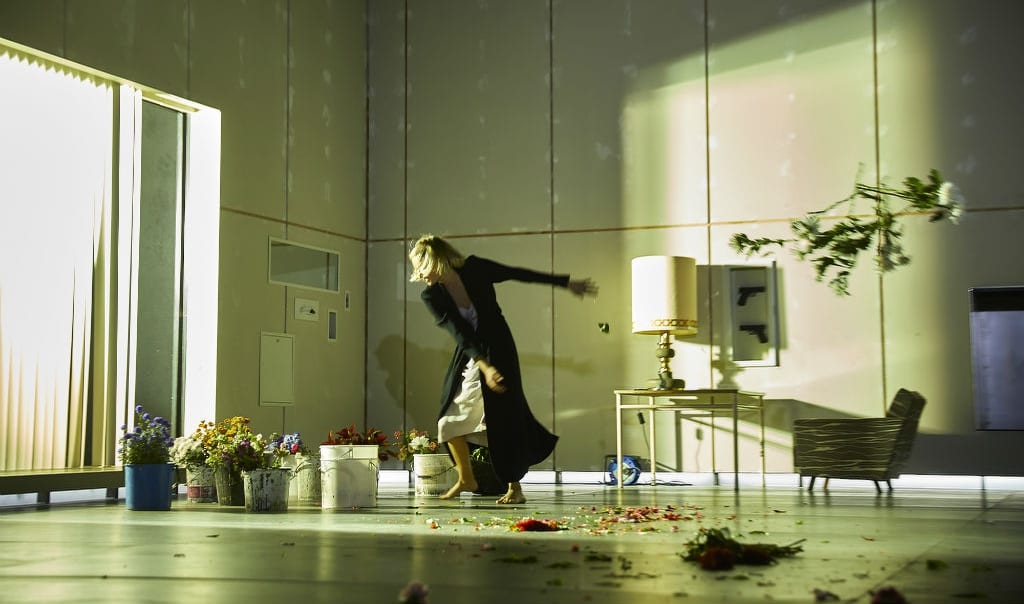The National Theatre’s production of Hedda Gabler opens with Hedda and Berte, her maid, seated on stage. While other characters appear and talk to Berte and each other, Hedda’s presence goes unnoticed for the first few minutes, in which time she is talked about a lot. This, really, is one of the central concerns of the play: how Hedda’s beauty, which – along with her post-honeymoon figure – is constantly remarked upon, makes her public property, to be regarded and discussed but never properly engaged with by anyone. She remains on stage throughout the play, while the others come and go; although it is possible for others to leave and re-enter the space, Hedda is trapped – inside herself, her apartment, her marriage – and becomes the constant subject of scrutiny and discussion, whether from the other characters or the spectators ourselves.
The stage itself is brilliantly crafted, a large, bright, beautiful space which is nevertheless oppressive. The sparse furnishings help to create an atmosphere of barrenness, of the lack of vitality in Hedda and Tesman’s marriage. Van Hove has said that he didn’t want to make a historical play, and the new setting works very well – there is a lack of geographic or temporal specificity, which means the story feels accessible without having to try to be. The text, too, which was updated for this production, is fresh without being overtly contemporary and gimmicky. As Van Hove says, “Hedda Gabler today is about giving audiences a sign of our times, of the emotional emptiness that we have to deal with”; his production conveys this “emotional emptiness” admirably, with no simplification or reduction of the essence of the play.

Lizzy Watts is phenomenal in the title role, embodying Hedda’s sensuality, her fear, her boredom, her spite, with vigour and conviction. She seems at ease on stage, whether lazily reclining on a chair or dropping to the floor and crawling; her Hedda is playful, witty, catty, cowardly, and doomed. The rest of the cast, too, carry their parts well – Adam Best’s Brack is particularly good, cajoling and unsettling in equal measure. For a play that takes place over the course of twenty-four hours, the second act feels slow at times, as we wait for the final pieces to fall into place. Ultimately, though, this is a masterful piece of theatre, in which every element comes together to build something transcendent, and shocking.

